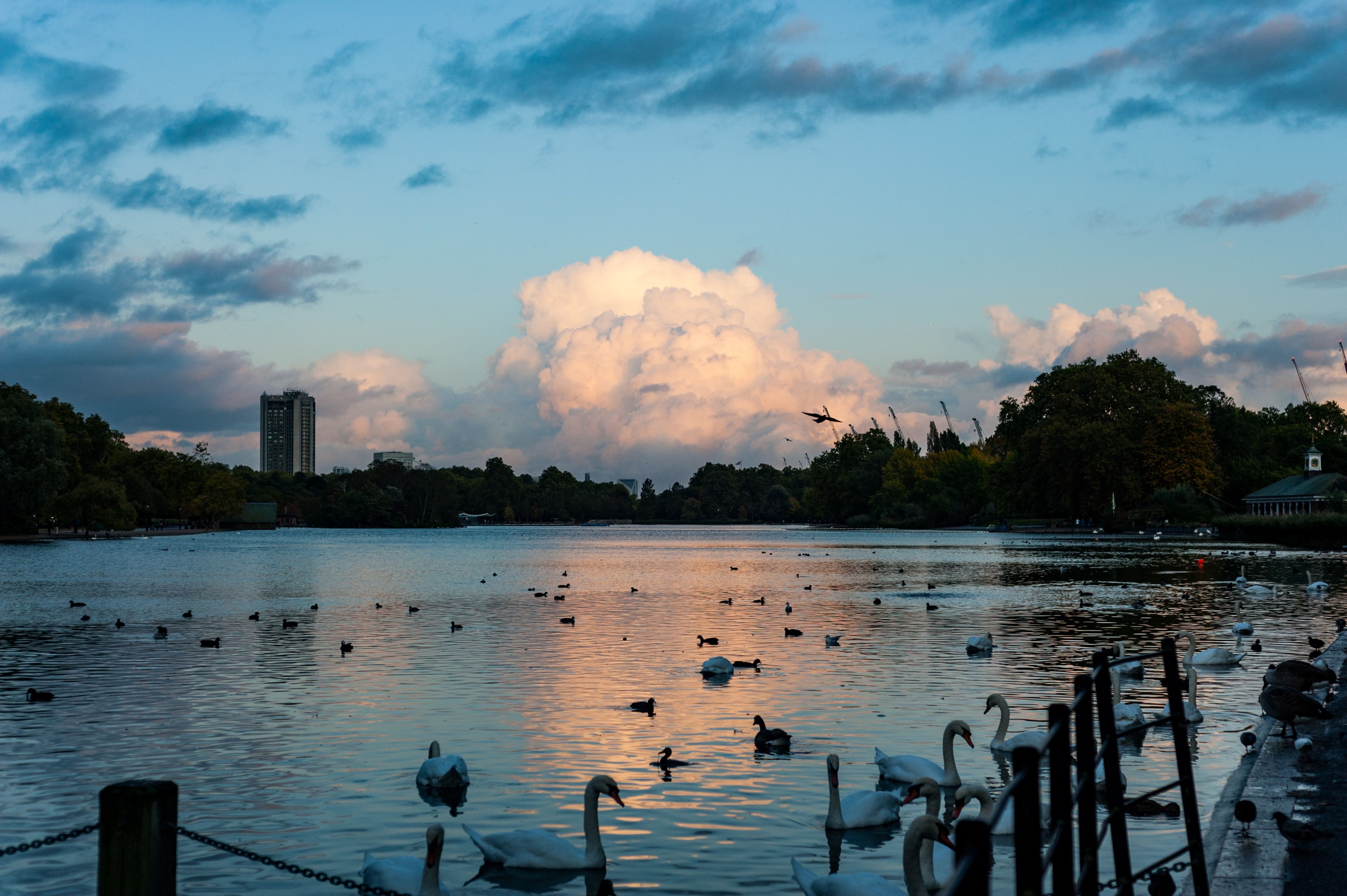Cold Body, Warm Heart
Is cold water immersion the key to mental and physical health?

A brief history
Across the world water has long been referred to as a cure-all for ailments and associated with ritual and wellbeing.
Hippocrates noted the benefits and risks of cold water in ‘Airs, Waters and Places’, and in his Ancient Greek texts there are several references to the therapeutic power of water, alongside a bold statement: “the water can cure everything.”
However, it was the Romans that embraced water as therapy. They installed cold plunge pools called ‘frigidariums’ in their communal baths that were attributed with a range of cosmetic and medicinal qualities.
Later in the 19th Century cold water swimming began to take hold as a group activity. In 1863, the Serpentine Swimming Club was set up in Hyde Park.
In 1903 the author JM Barrie donated the Peter Pan Cup to the club, and to this day swimmers race through the winter, including on Christmas Day, to win the cup.
Abroad, the ritual of 'ice bathing' is embedded in tradition, and in Russia Orthodox Christians celebrate Epiphany on 19 January by submerging themselves in ice water three times, when temperatures are well below zero.
In the UK the number of people getting into cold water during the winter for the perceived mental and physical benefits has increased significantly in recent years.
During the 2020 lockdown, swimmers even climbed into bins filled with water in their gardens to get their cold water hit.
The Outdoor Swimming Society, which has over 86,000 members on Facebook, endorse the health benefits of cold water swimming, whilst thousands every year clamber to take part in triathlons, open water swims and cold water workshops.
Even Britain’s lockdown PE teacher Joe Wicks regularly takes the plunge in an ice bath he has set up in his garden, claiming the benefits for recovery and his mental health.
In February he live-streamed immersing himself in 170 kg of ice which you can see below.
So, what is cold water swimming, and why is it seeing a resurgence in popularity?
‘Cold Swimming’ is classified as swimming in water below 16 degrees centigrade - temperatures usually found in UK seas between November and June.
Most of the year, both inland and coastal waterways are classified as cold, and therefore most people that wild swim in the UK enter the water at these lower temperatures.
However, whilst some people would only consider this on a warm summer's day, more and more are going for a festive dip in the winter months.
At this time of year sea temperatures can drop to six degrees, and inland water temperatures can drop to zero, a temperature range classified as ‘Baltic’ in the Outdoor Swimming Society cold water swim guide.
Despite the temperature, the wild swimming community has seen a boom in the number of people taking to the water for their mental as well as their physical health.
In a survey by Outdoor Swimmer Magazine of their readers, they found that 65% swam outside two to three times per month or more in winter.
In the same survey 75% said that outdoor swimming was very important or essential to their mental health.
This rise may be attributed to more people holidaying in the UK due to travel restrictions imposed by the coronavirus pandemic.
According to the Office for National Statistics (ONS), UK residents made 74% fewer visits abroad in 2020 than in 2019, whilst interest in the search term ‘Staycation’ on Google spiked significantly both this and last summer.

As less people holiday abroad, more people are entering seas, rivers and lakes in the UK during the summer, with some continuing to swim over the winter months.
For these swimmers, the cold water is a lifeline for their mental and physical health.
Scroll down to read their stories.

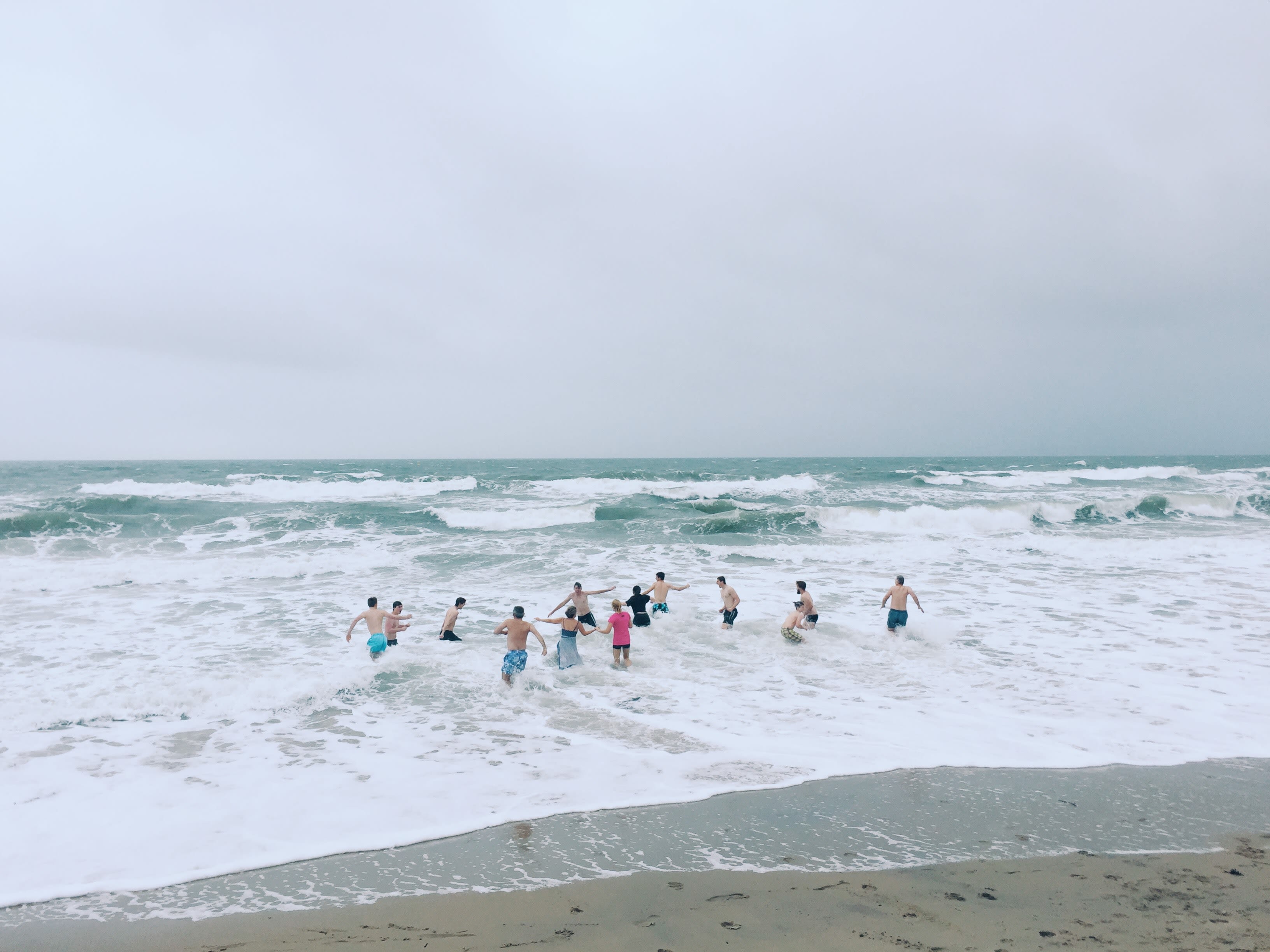
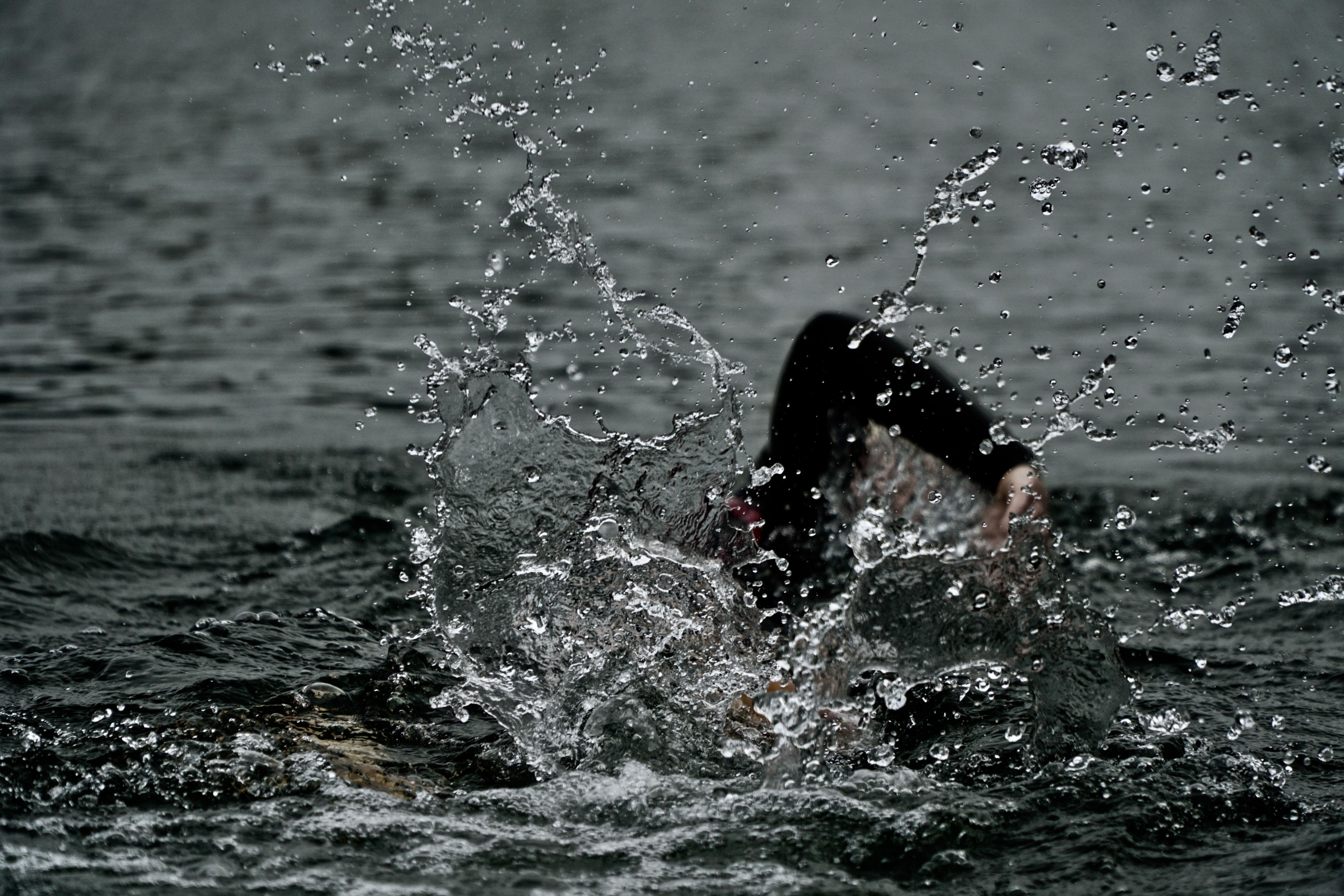
Greg's story
“You’ve accomplished something which is amazing and then you think you can conquer other things in your day.”
Greg Douglas, 40, grew up in Durban, South Africa, and turned to open water swimming after being diagnosed with anxiety and depression last year.
Greg said: “I caught covid right in the beginning and I was in bed for two weeks. I probably would have gone to hospital if it had happened later on, but they didn’t have blood oxygen monitors or anything.
“Then I got deep vein thrombosis as I was coming right and so that triggered anxiety and depression.”
After being referred to a therapist he found solace in cold water.
Greg said: “I started therapy and had to change my life and I started open water swimming as well as having cold showers.”
For him, being out in the water is a reminder of his childhood, as he grew up by the beach and swam regularly in the Indian Ocean.
Now he swims at Shepperton open water lake which offer supervised swimming throughout the winter.
Greg said: “I think it helps you to just reset and not think for a while.”
“You’ve accomplished something which is amazing and then you think you can conquer other things in your day.”
From struggling with the demands of working from home during the pandemic and mental ill health, cold water provided much needed energy that was transferable to other areas of his life.
Torri's story
“It doesn’t matter if you’ve just had an argument, or a relationship breakdown, or if you’ve woken up really anxious. You just get in, and you think, this is washing everything away.”
Torri North, 50, started cold water swimming three years ago after reading an article about the mental health benefits for those suffering with anxiety.
After researching more, she discovered that cold water could be a means of regulating her anxiety.
“Once the symptoms have landed it’s got too overwhelming, whereas what I wanted to do was start training my brain and my body to recognise it from the cold-water shock,” she explains.
She started swimming at The Quays, Camberley during the winter, then did an open water swimming course to learn about staying safe in cold water where she met a group of women including Peta (pictured) who she now swims with regularly.
Since then, swimming has transformed her life.
Torri described how it has helped her mental wellbeing as well as generating body positivity.
She said: “I would never three years ago even have contemplated that I would have a freedom about my body that I do now.”
When she started swimming, she was very nervous about wearing a swimming costume and revealing her body, but now she says she “doesn’t even register it.”
She takes part in wild swims, has set up a swimming group in Woking, and even organised a group skinny dip event.
She said that wild swimming had also changed her relationship with nature.
She said: “It’s completely grounding. I feel so much more connected, and just the beauty of nature blows me over all the time.”
“It doesn’t matter if you’ve just had an argument, or a relationship breakdown, or if you’ve woken up really anxious. You just get in, and you think, this is washing everything away.”
Speedo Mick's story
"In my life, I've been in some dark, lonely, hopeless places and for me, one of the most rewarding parts of my fundraising has been to help people who are facing what I have faced."
Michael Cullen, otherwise known as Speedo Mick, had his life transformed after doing his first solo crossing of the English Channel in 2014.
Self-acclaimed as an "Addiction survivor, Channel Swimmer" in his Twitter bio, Mick finished his 'Giving Back Tour' on 17 December, walking 2500 miles around the UK and Ireland over six months in only his speedos to raise money for the Speedo Mick Foundation, which helps young people facing hardship.
"Homelessness, mental health and disadvantaged young people are issues very close to my own heart as I've been through those struggles and I know how hard it is to come out the other side," explains Mick on his website.
Facing the elements, including snow, wind and rain without protection, Mick remains focused on the benefit his feats will provide for others.
He said: "In my life, I've been in some dark, lonely, hopeless places and for me, one of the most rewarding parts of my fundraising has been to help people who are facing what I have faced."
Speedo Mick finished his first crossing of the English Channel as a novice swimmer in 2014, training with the Serpentine Swimming Club in Hyde Park.
In February 2020 Speedo Mick came to the end of his three month John O'Groats to Land's End walking tour, but he struggled without a sense of purpose during lockdown.
"The last year has been very tough for me personally. I've struggled with depression and at times it felt like it was never going to end," said Mick.
"The Giving Back Tour has given me my purpose back after a really tough year and it's helped me see light at the end of the tunnel."
Will's story
“I walked in painful and a bit creaky, and I walked out with no pain at all."
Wim Hof instructor, Will van Zyl, has created a lifestyle centred around cold immersion, and runs workshops in the UK.
After struggling with spinal problems for many years, he heard of the Wim Hof Method, named after the famous Dutch 'Ice Man' who has broken multiple cold exposure Guinness World Records.
Over the years Wim Hof developed the method based on three principles: breathing, cold therapy and commitment.
Will said: “As a gateway to wellbeing, it is probably the single most effective ‘method’ that I’ve come across to get to a very calm, meditative state.”
The method uses breath work as a foundation to incrementally increase the body’s ability to endure cold temperatures, and has been associated with studies that suggest it can alleviate pain, regulate mental wellbeing and help to manage the symptoms of some autoimmune diseases.
In conversation with Will, he described how he suffered with extreme back pain since he was a teenager and broke his back in the 1990s, resulting in permanent nerve damage to his left leg.
He had tried various techniques including yoga and mindfulness to manage the pain but reached a crisis point a few years ago whilst working in a high pressure corporate job.
“I lost sight of what was important, which was taking care of my body, and my back gave out again, badly.”
He had slipped two discs in his spine and was also suffering extreme pain from arthritis in his neck, and was taking anti-inflammatory medication up to eight times a day.
After talking to a friend about the benefits of yoga and breathing exercises, he was recommended to attend a workshop by Wim Hof in Camden.
“I walked in painful and a bit creaky, and I walked out with no pain at all, and I was very light and limber, and that was within a two-and-a-half, three hour period," said Will.
“Since then, I’ve weaned myself off non-steroidal anti-inflammatory drugs. I don’t use them unless there’s an extreme problem with my back. I was going through six or eight of those a day. I now use two, maybe every two to three months.”
He said that the cold immersion and breathing had induced a stress response in the body that produced a pain relieving effect.
In this stress state, the body releases adrenaline, cortisol and noradrenaline, triggering the release of endocannabinoids and endorphins in the body that help to create a good mood, as expanded in this study.
For those looking to start cold water immersion he recommends starting with cold showers, using his step by step guide.
For ice baths, he recommends learning how to regulate breathing to get into the right mindset before entering the water.
He said: “In an ice bath, I’d always advocate doing your first ice bath with someone, and I’d always make sure that you set yourself a maximum cut off threshold.
"Regardless of how you feel, you will come out of your first ice bath after 60 seconds. So go very gradually, and feel your way in, feel what your body is telling you.”

Greg Douglas after a winter swim at Shepperton swimming lake
Greg Douglas after a winter swim at Shepperton swimming lake
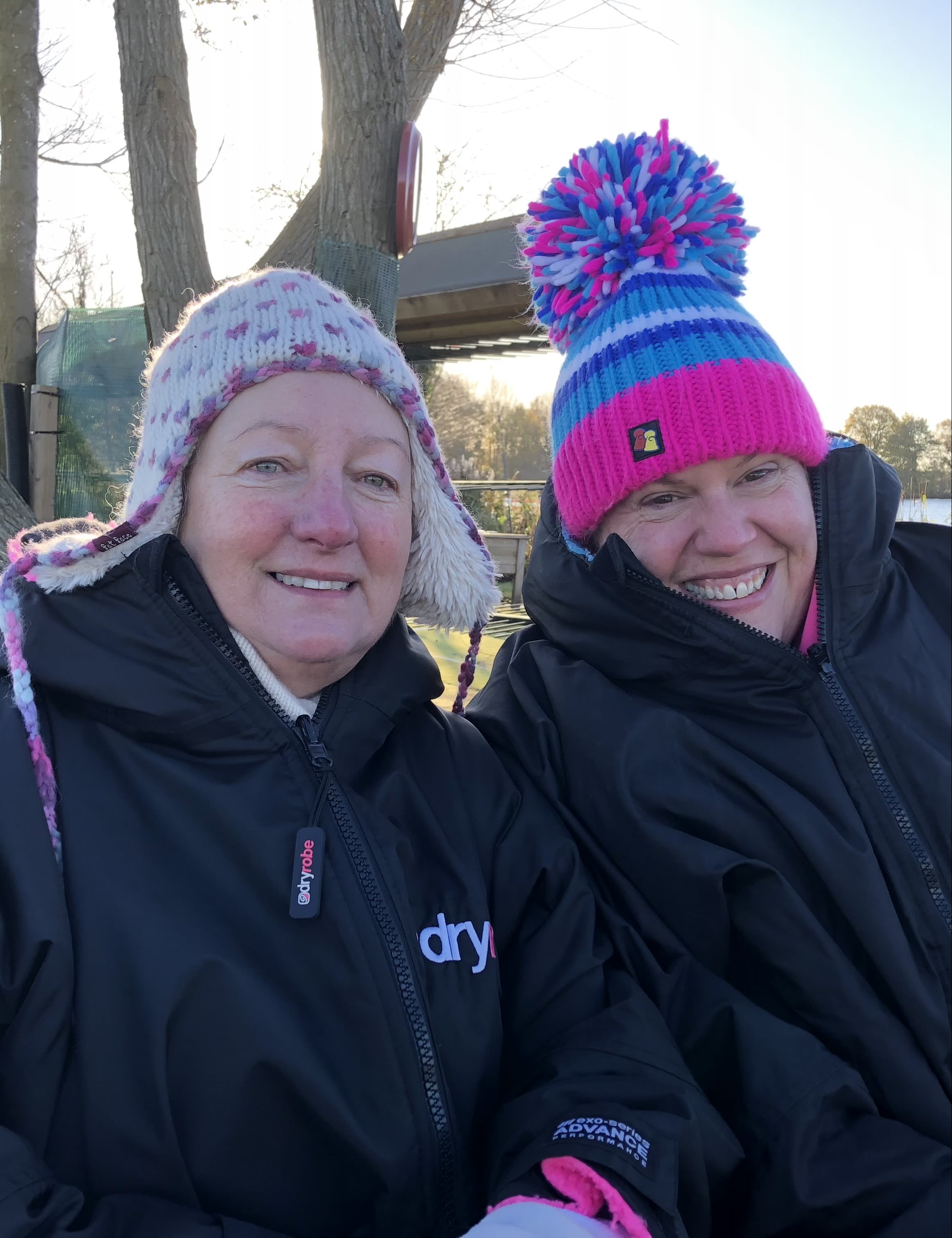
Torri North (right) and Peta Rackett (left) after a cold swim at Shepperton open water swimming lake
Torri North (right) and Peta Rackett (left) after a cold swim at Shepperton open water swimming lake
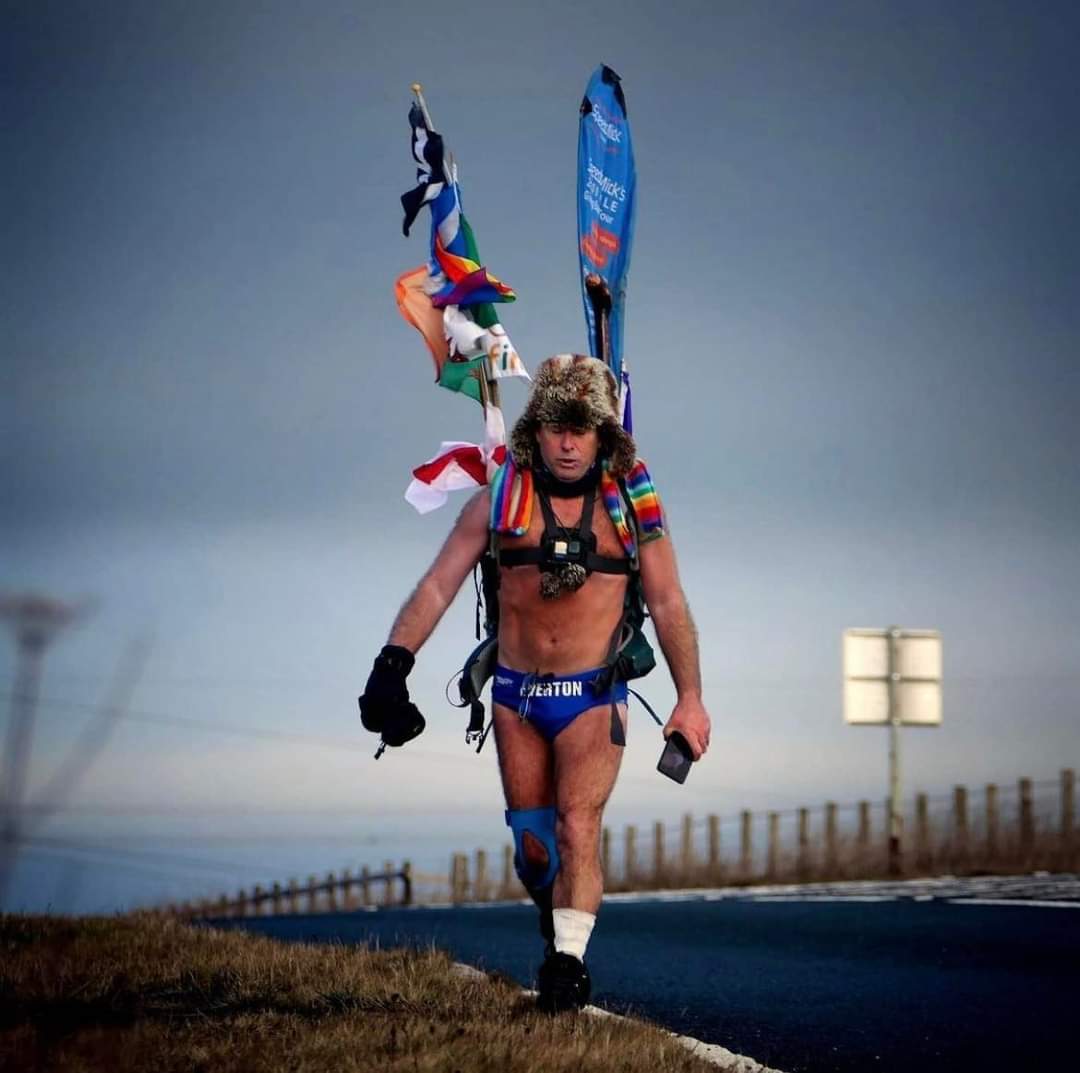
Speedo Mick coming towards the end of his Giving Back Tour this December
Speedo Mick coming towards the end of his Giving Back Tour this December
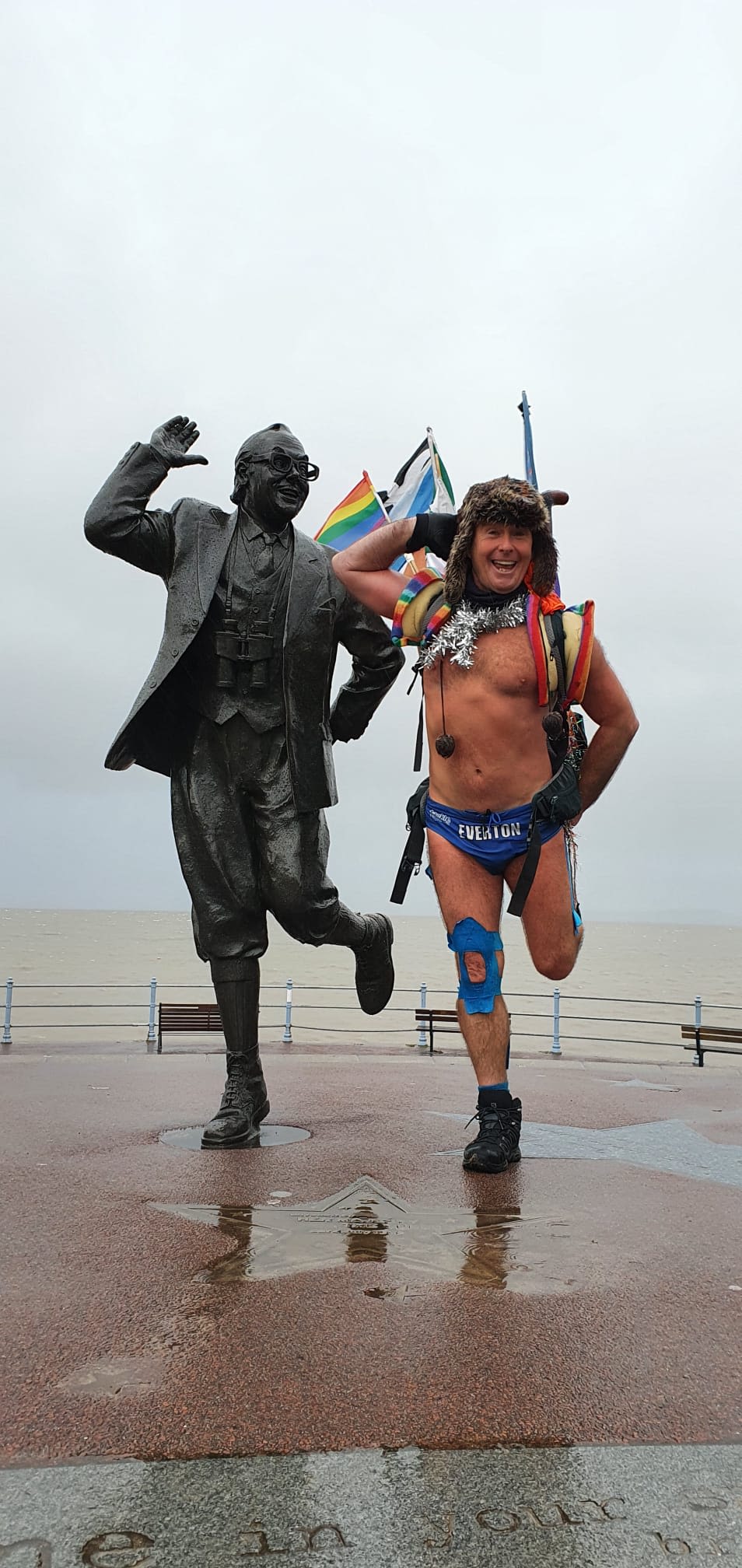
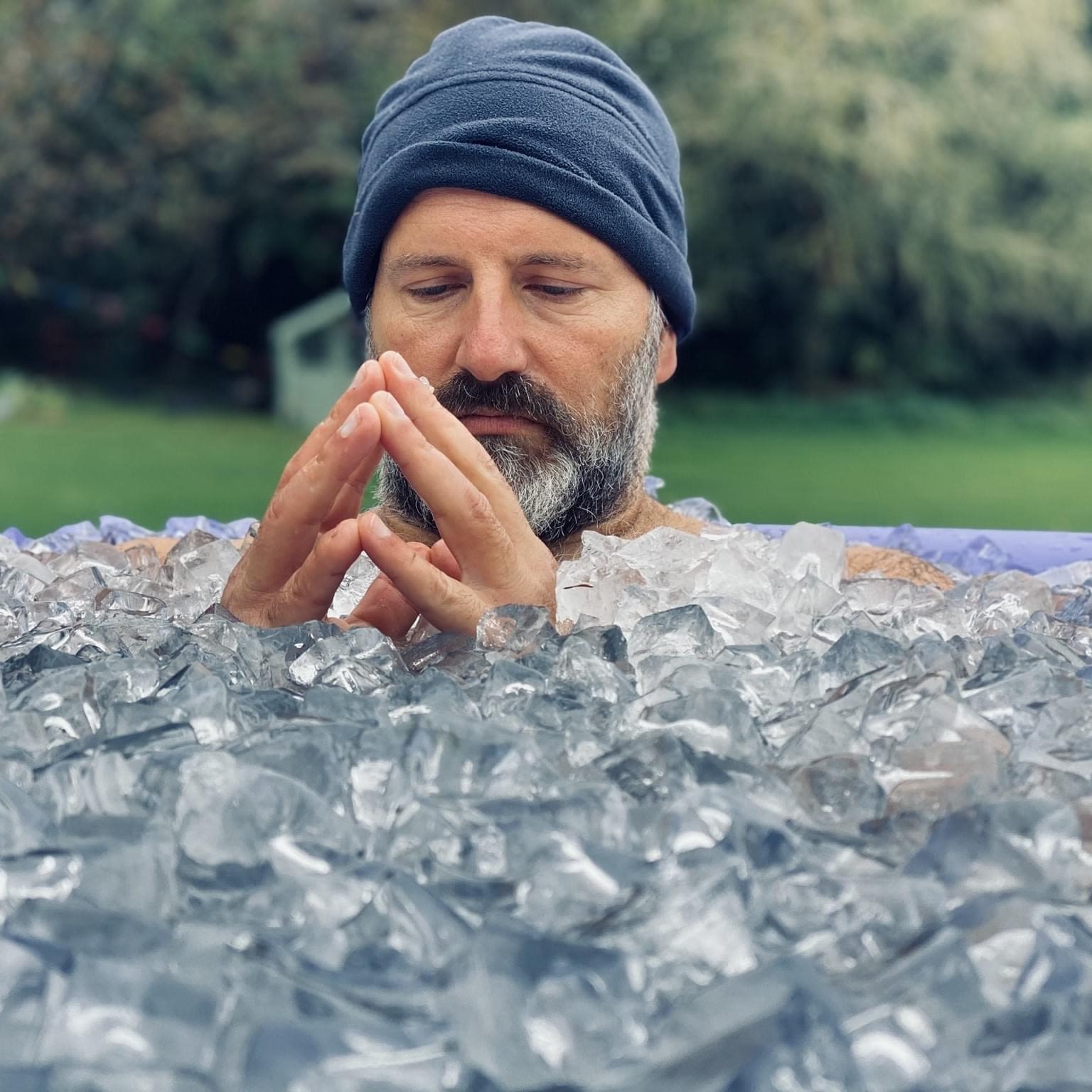
Will focused in an ice bath
Will focused in an ice bath
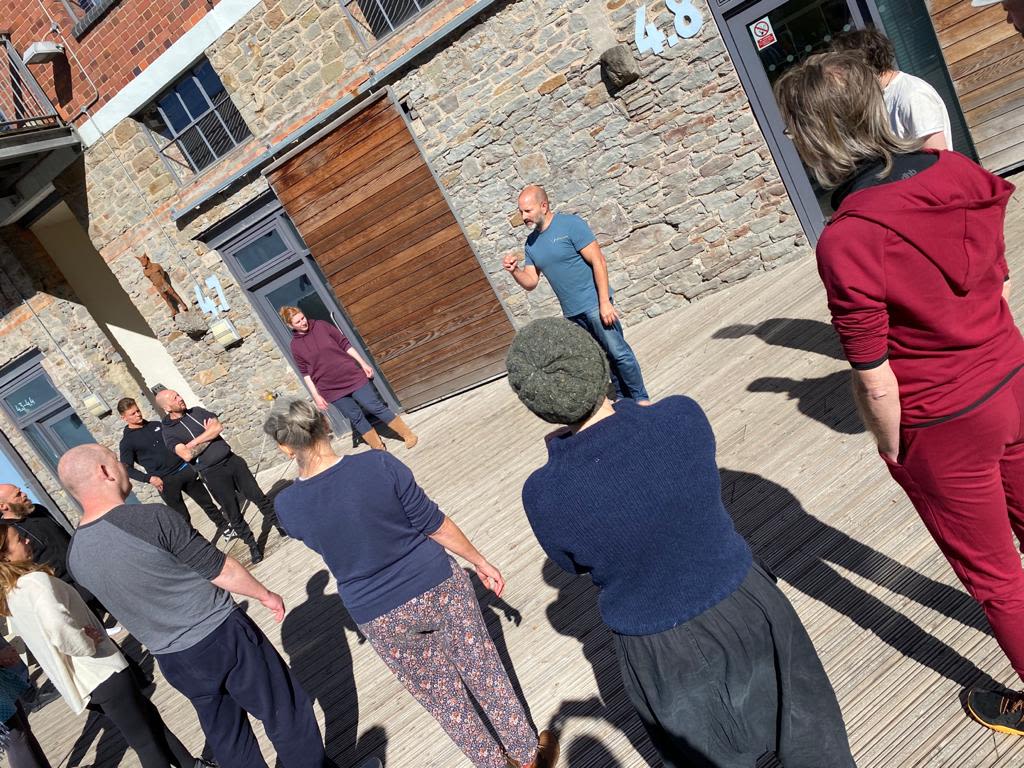
Will running a Wim Hof Method workshop
Will running a Wim Hof Method workshop
What are the health benefits?
Lowered blood pressure
There is scientific evidence that people who swim in cold water regularly, and are habituated to the cold, experience lower blood pressure.
Reduced symptoms of anxiety and depression
In one study examining how effective cold water is in the treatment of depression, Professor van Tulleken trialled a weekly programme of cold water swimming on a 24-year-old woman with major depressive disorder. This led to an improvement in her mood, and over time she no longer had to use medication to treat her depression.
Other swimmers have noted a similar feel-good effect after being in cold water, and you can read more on the Mind website.
Reduced inflammation
Evidence suggests that immersion in cold water can lead to lowered levels of inflammation as blood vessels constrict, and swelling caused by fluid build-up goes down.
Better resistance to the common cold?
In a study looking at whether cold water swimmers were less susceptible to upper respiratory tract infections in comparison to their non-swimming partners, there were no reductions in the number of infections. But, cold water swimmers did have better resistance to colds.
What are the risks?
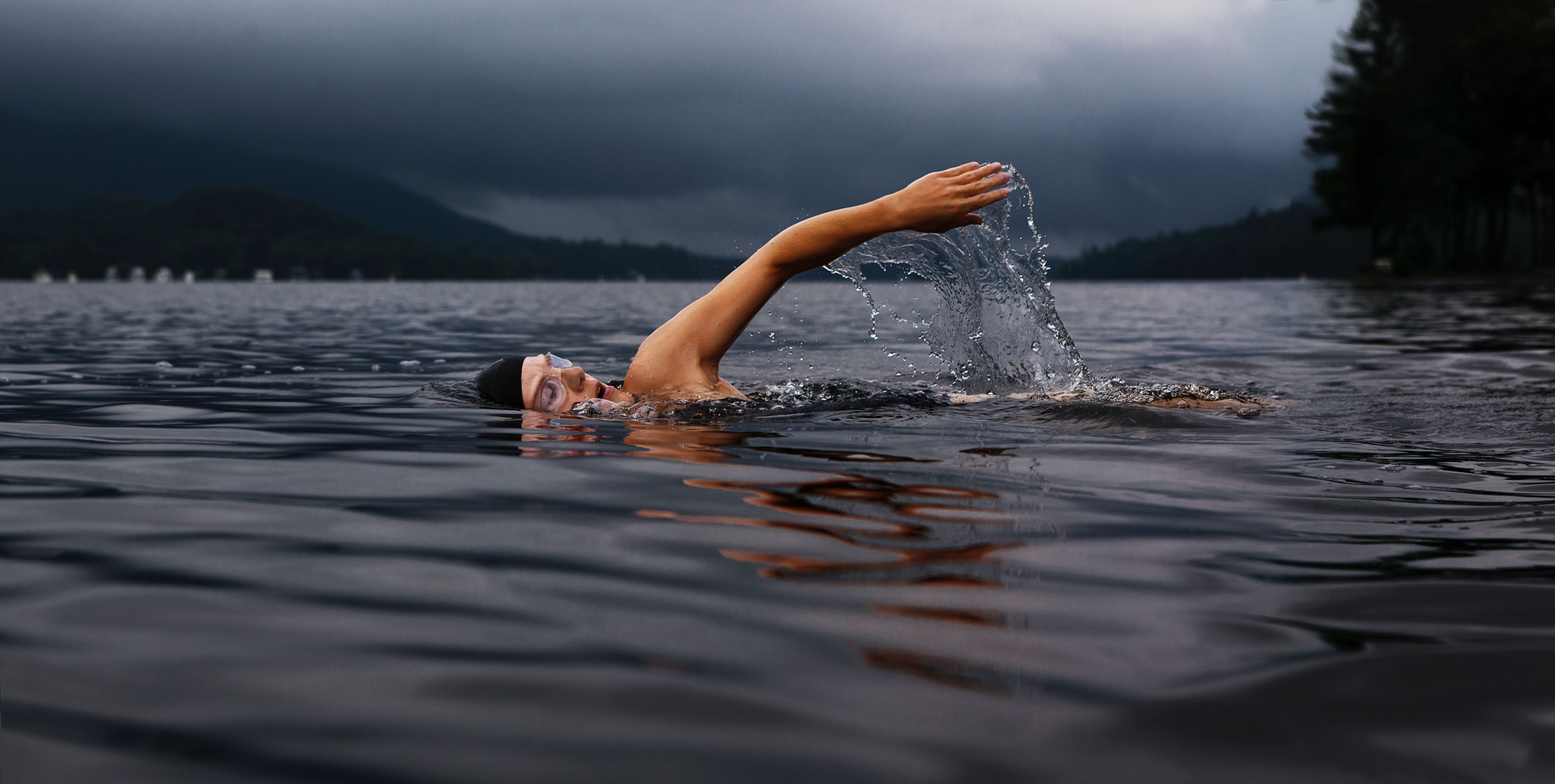
Cold water immersion is not without its risks.
Figures published by the RNLI show that during the summer months in 2021, 108 swimmers were aided in comparison with 53 in 2012, showing a 50% increase in the number of rescues over nine years.
Sudden immersion in cold water can generate what is described as the cold shock response which includes hyperventilating, and an instinct to swim hard which can lead to fatigue and inhalation of water that result in drowning.
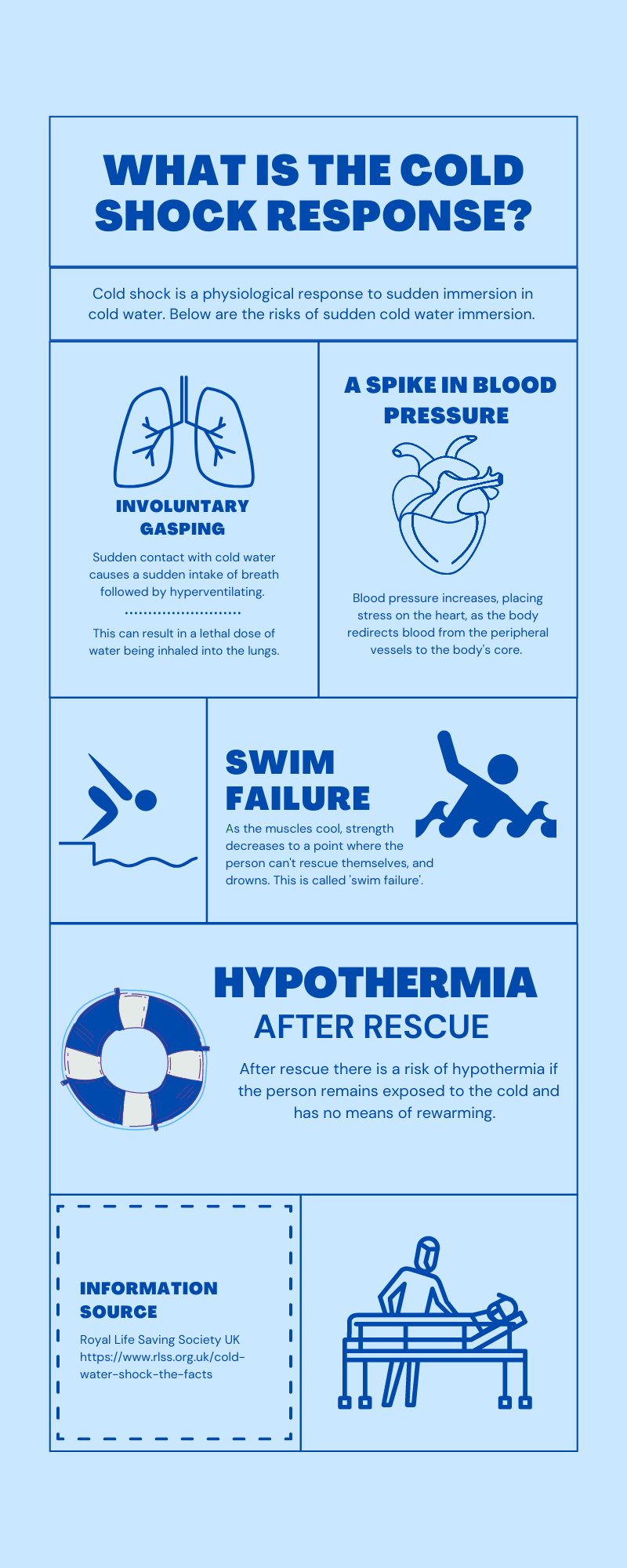
In response to deaths caused by cold water shock in coastal areas the RNLI launched the Float to Live campaign in 2017.
As part of the Float to Live campaign the RNLI also produced a video in collaboration with Mike Tipton, a professor of Human and Applied Physiology at the University of Portsmouth, titled “how to survive cold water shock”.
In this video Professor Tipton outlines that when responding to cold shock: “It’s much safer to relax and try and float for about the minute to 90 seconds it takes for the cold shock to disappear.”
In conversation with South West Londoner, he explains the physiological effects of cold water immersion on the body:
Professor Tipton outlines that it is possible to become more comfortable in cold water with each immersion and have a reduced cold-shock response over time.
He makes these recommendations for novices who are thinking of taking up cold water swimming:
1. Get a health check before you swim.
2. Swim with a recognised group.
3. Get into the water slowly.
4. Stay in for a short period of time and don’t overstay your welcome.
Where can I try cold water swimming in London?
